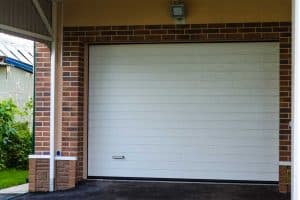In most homes, the garage door occupies a significant portion of the exterior. Aside from aesthetics, it can significantly increase your property’s resale value. Spending on a high-quality garage door is a sound investment among your other home improvement projects. And, a high-quality garage door is made of steel material. But what thickness or gauge steel is best for the garage door?
The best gauge steel for garage doors is gauge 24. The higher range of 27-28 gauge steel is also widely used for low-cost garage doors. These are usually thin steel panels. Gauge 25 or 26 is a builder grade and is chosen for mid-level garage doors. Thus, steel thickness increases as the gauge number decrease.
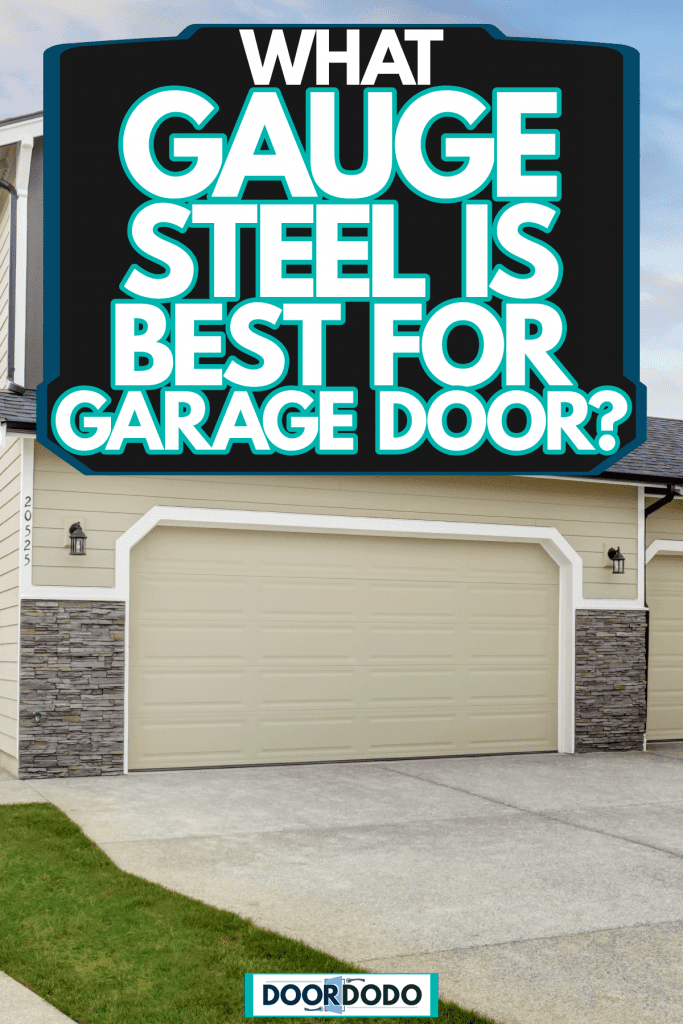
There are many different materials for garage doors available in the market today, but steel material has become increasingly popular among the rest. Let’s dive in to learn the reasons why gauge steel 24 is the best and became the preferred choice among homeowners for their garage doors.
Steel garage doors are relatively higher-priced compared to other materials. A high upfront investment on a steel garage door can be offset by the unparalleled durability and low maintenance costs it offers over a long period of time.
On the aesthetic side, steel garage doors can be even customized according to the owner’s preference. It can be painted to make the texture and appearance resemble wood.
But the most important factor that is seriously considered for a steel garage door is the thickness of the steel material.
The steel thickness of the garage door essentially matters to withstand impact and also to avoid unsightly dents. Steel gauge 24 can best provide this purpose.
Garage doors have a lot of moving parts, much more when it is frequently used, that is, serving as a major entryway to the interior of the house. With steel gauge 24, the thickness can endure heavy wear and tear over long periods of use.
On maintenance costs, steel garage doors do not warp even for many years. Structural problems such as sagging in the middle, which could happen with other materials, are never likely to happen. Steel provides strength, thus virtually lowering maintenance costs. A steel garage door is expected to last more than 20 years in smooth operation.
With a lower budget, some homeowners choose to buy the higher range of gauge 26, 27, and 28 for steel garage doors. Though adaptable to many types of garages, they are low-cost materials of thin steel panels that are prone to accumulate dents and dings over time. It can also gather rust due to the cheaper quality of steel.
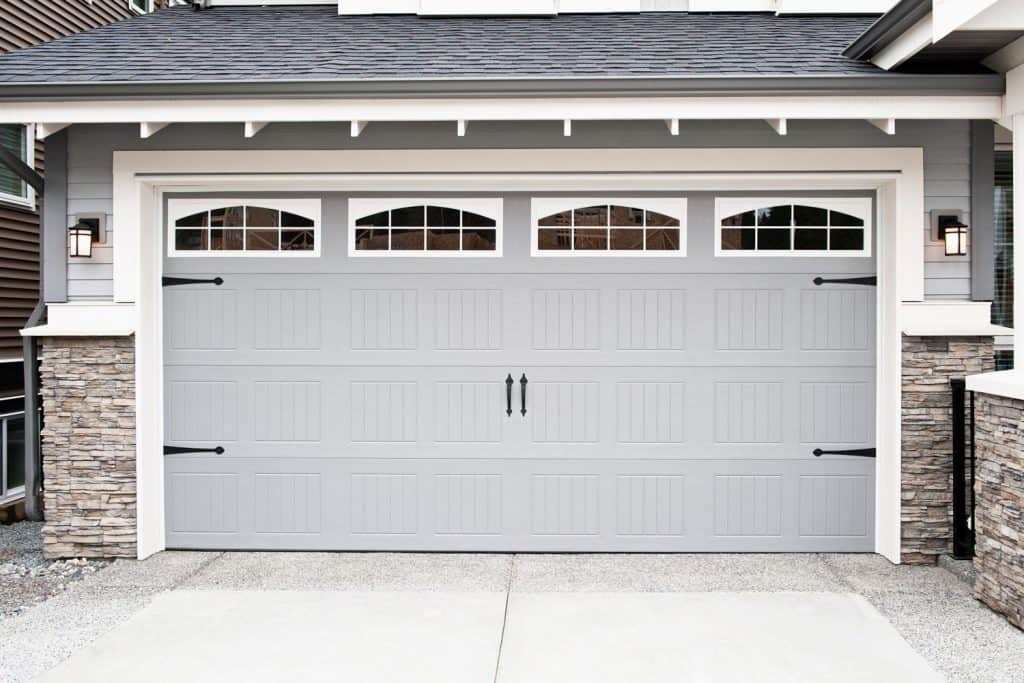
Higher gauge steel panels are so pliant that they can even be bent by bare hands or cut by an ordinary box knife, A sudden impact of a basketball, for example, can leave a dent that could obviously alter its appearance. And since it can be easily dented or cut, this gives rise to security issues with your property.
A dented or damaged garage door can give more problems on stress and security rather than it was originally intended for. Due to this, maintenance costs are high for higher gauge and cheaper steel panels.
Another advantage of choosing steel material for your garage door is that steel is a good insulator from noise. If your property is close to noisy environments such as factories, commercial hubs, and populated suburbs, installing a steel garage door could ward off the annoying noise from the outside of your home.
Choosing steel over other materials gives so many advantages. Aluminum could give a long-lasting finish. It is also lighter and cheaper than steel but it is highly prone to dent. Wooden garage doors look traditional and offer strong curb appeal, but maintenance costs and refurbishing are much higher than steel.
Fiberglass could be another alternative to steel material. Unfortunately, it is more expensive than steel. For this reason, it has become less popular in the market for garage doors. Being pricier, the benefits it offers cannot even equally amount to those on steel garage doors.
Fiberglass can be painted with aluminum framings. It can hardly dent compared to thin steel panels. As compared to steel, fiberglass is lightweight and can fade over time due to weather exposure. It easily corrodes due to exposure to external elements.
Anyone who has a garage door will surely know that opening or closing the door does make a noise. Choosing the thicker gauge steel 24 produces less noise than the thinner plates of gauge 27 or 28. Adding insulation to the garage door can help reduce the noise more. Hence, the noise level of steel could be a concern to some homeowners.
Planning for a new garage door is no easy task. For some homeowners, it could be a one-time upfront investment. When it’s time to buy a garage door, whether, for your newly constructed carport, outfitting, refurbishing, or replacing your old garage door, a few questions might enter your mind regarding the thickness of the steel material you plan to purchase.
Which is thicker: 24 or 25 gauge steel?
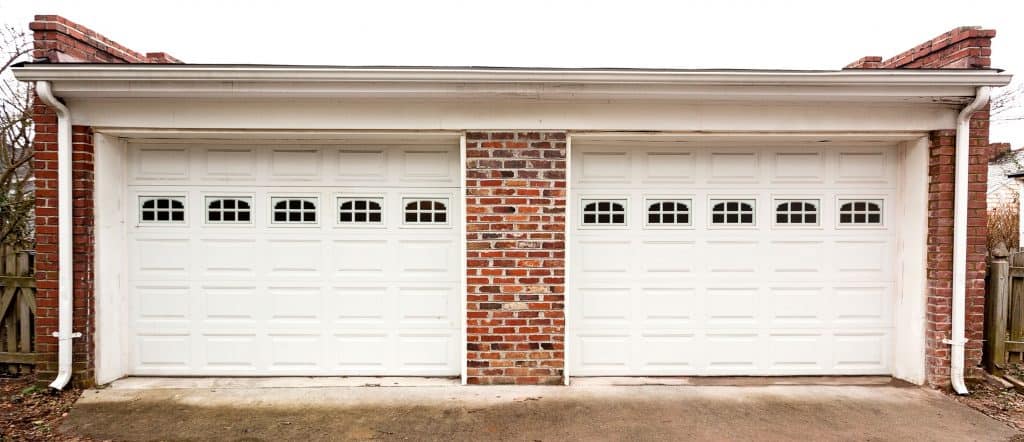
Gauge steel 24 is thicker than gauge 25. The steel thickness increases as the gauge number decrease. The gauge refers to the strength and value of the metal. A thicker gauge would mean strong steel framing that is more resistant to harmful external elements, including weather. This will also add value to your property.
Is a 24 gauge steel door strong?
A 24-gauge steel door is strong and is considered top-quality for residential garage doors. For commercial garage doors, a thicker metal of gauge 25 is more appropriate. Commercial use would mean more frequent opening and closing of the garage door, and heavy exposure to hazards in the workplace, including weather.
What gauge metal is strongest?
Gauge metal 12 is the strongest. It has the highest tensile strength that can withstand snow load and wind load. This is recommended for areas with heavy snow and high winds and also for commercial carports with high steel trusses and spans.
What gauge steel are Clopay garage doors?
Clopay™ is a trusted brand for quality garage doors in the US market. They offer 24, 25, or 27 -gauge steel garage doors. To minimize dents, they offer a “sandwich” type steel garage door. It is constructed as two panels of 27-gauge steel with an insulating core in between. This sandwich-type construction could be even stronger than a single layer of gauge 24 steel.
How thick should a garage door be?
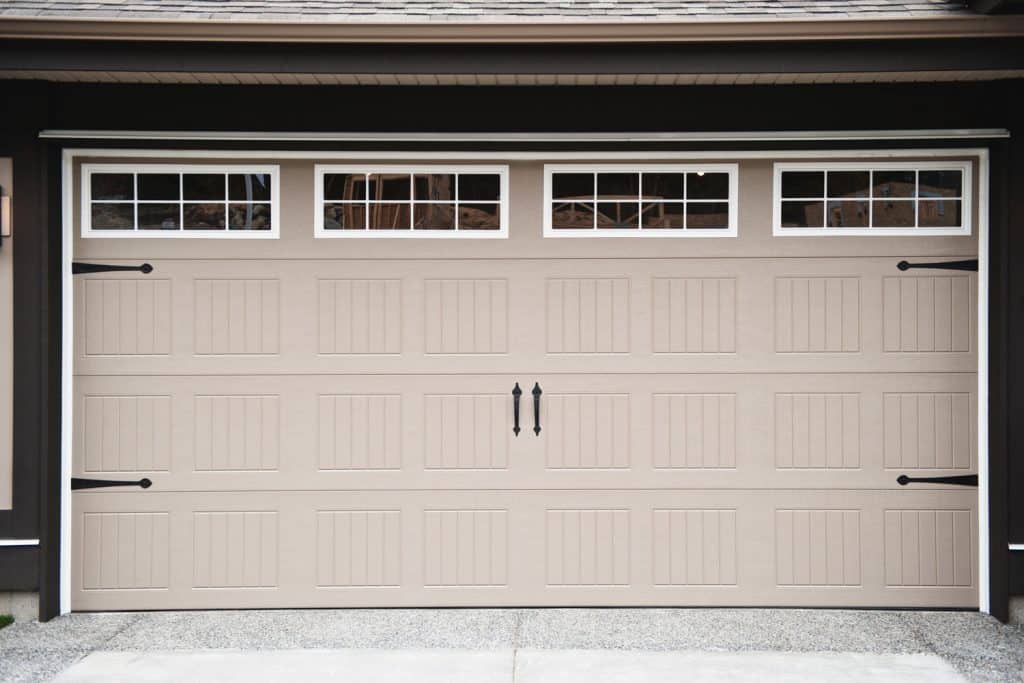
Gauge 24 steel thickness for residential garage doors is considered the best, and the industry standard. It is rigid and the thickest available for residential doors. A lifetime warranty usually comes with the package when purchased from commercial sellers.
The Takeaway
The garage door could take center stage at the facade of your home. It should always be well-maintained, both in appearance and operation for many years. Choosing a gauge 24 steel material for your garage door is a sound investment decision due to its strength and value. With the best steel thickness, you reap the benefits in the long haul.


